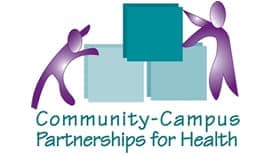Public health leader to address partnerships between universities, communities

Al Richmond, executive director of Community-Campus Partnerships for Health, will speak from 3 to 5 p.m.., Tuesday, March 24, in Cone University Center, Room 210.
Established in 1997, Community-Campus Partnerships for Health (CCPH) is a nonprofit membership organization that promotes health equity and social justice through partnerships between communities and academic institutions.
During his March 24 presentation, Richmond will introduce attendees to CCPH’s “Principles of Partnerships” that the organization adopted to forge authentic community-campus relationships. It also tries to influence policies that shape the conditions and environments in which people live, taking a comprehensive view of public health.
A commitment to equity underlies all of the CCPH’s public health initiatives. According to the organization, people should have “full and equal access to opportunities that enable them to attain their full potential.” Social, economic, geographic, political and physical environmental conditions all play a role in determining levels of equity, noted CCPH officials.
Richmond has more than 25 years of experience in a career that has blended social work and public health to address racial and ethnic disparities. He was founding member and past chair of the Community-based Public Health Caucus and the National Community-based Organization Network, both affiliated with the American Public Health Association.
CCPH has produced many projects intended to further campus-community projects. Its “Community Engaged Scholar Toolkit” provides academic faculty members with a set of tools to carefully plan and document their community. The organization also encourages “service-learning” for students; through public service, future public health professionals can learn about the context in which service is provided, and the connection between their service, their coursework and their roles as citizens.
Richmond’s presentation is cosponsored by the College of Health and Human Services, College of Liberal Arts & Sciences and Metropolitan Studies and Extended Academic Programs. He also will hold a roundtable with faculty members and local public health leaders.